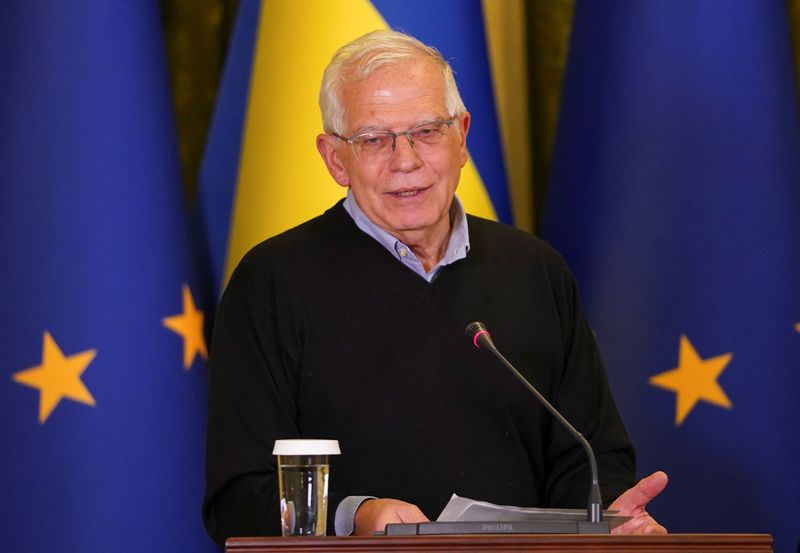By John Irish
WEISSENHAUS, Germany (Reuters) -The European Union on Friday said it believed it had breathed fresh life into stalled efforts to revive the 2015 Iran nuclear deal, but both Iran and the United States put the onus on the other to compromise and there was no date set for new talks.
The EU’s foreign policy chief said he believed there had been enough progress during consultations between his envoy and Iranian officials in Tehran this week to relaunch nuclear negotiations after two months of deadlock.
Talks to revive Iran’s 2015 nuclear deal with world powers have been on hold since March, chiefly over Tehran’s insistence that Washington remove the Islamic Revolutionary Guard Corps from the U.S. list of designated terrorist organisations.
Speaking as Enrique Mora, the EU diplomat who coordinates the talks, returned to Europe from Tehran, Josep Borrell said Iran’s response had been “positive enough” after Mora had delivered a message that things could not continue as they were.
“These things cannot be resolved overnight,” Borrell told reporters at a G7 foreign ministers’ meeting in Germany. “Let’s say the negotiations were blocked and they have been de-blocked”, with the prospect of “reaching a final agreement”.
The broad outline of the deal that aims to revive the accord which restrains Iran’s nuclear programme in return for relief from economic sanctions was essentially agreed in March.
However, it has since been thrown into disarray after last-minute Russian demands and the dispute over the U.S. Foreign Terrorist Organization (FTO) list.
Western officials are largely losing hope that it can be resurrected, sources familiar with the matter have said, forcing them to weigh how to limit Iran’s atomic programme even as Russia’s invasion of Ukraine has divided the big powers.
“It has gone better than expected – the negotiations were stalled, and now they have been reopened,” Borrell said.
A senior EU official sounded a more cautious tone.
“We still have difficult obstacles on the way for an agreement,” he told reporters, adding that at least Iran and the U.S. remained engaged. A second EU official said no date was set for resuming indirect talks, which have taken place in Vienna.
Iranian Foreign Minister Hossein Amirabdollahian said Mora’s trip was a chance to explore how to settle the remaining issues.
“A good and reliable agreement is within reach if the United States makes a political decision and adheres to its commitments,” he said.
A U.S. State Department spokesperson said there was no certainty of a deal.
“Iran needs to decide whether it insists on extraneous conditions and whether it wants to conclude a deal quickly … It’s now up to Iran,” said the U.S. spokesperson on condition of anonymity.
Asked if Iran still demanded the removal of the IRGC from the FTO list the U.S. spokesperson replied: “We are not negotiating in public but the bottom line is that there is no deal and no certainty of one.”
A French diplomatic source said on Thursday he saw little chance of the United States agreeing to remove Iran’s elite security force from its list of foreign terrorist organisations any time soon.
Mora was in Tehran this week in what has been described as the last chance to salvage the 2015 accord, which then U.S. President Donald Trump withdrew from in 2018. Britain, China, France, Germany and Russia are also parties to the accord.
(Additional reporting by Parisa Hafezi in Dubai, Kirstie Knolle in Berlin, Robin Emmott in Brussels; Arshad Mohammed in Saint Paul, Minn. and Paul CarrelEditing by Kirsten Donovan and Alistair Bell)
